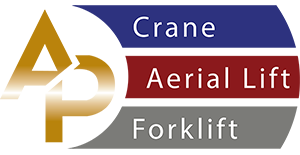The purpose of qualified rigger program is to set standards for measuring the knowledge and proficiency required for safe rigging practices. Based on extensive discussions with representatives from all segments of business andindustry who recognize the impact of safety issues, has identified the following
potential benefits of a qualified rigger:
Q. The standard requires that a rigger be a "qualified rigger" to perform certain tasks. What qualifications must a rigger possess to be a "qualified rigger?
A. Qualified rigger is a rigger who meets the criteria for a qualified person. A qualified rigger must therefore:
possess a recognized degree, certificate, or professional standing, or have extensive knowledge, training, and experience, and successfully demonstrate the ability to solve problems related to rigging loads. A qualified rigger must be able to properly rig the load for a particular job. He or she need not be qualified to do every type of rigging job. Each load that requires rigging has unique properties that can range from the simple to the complex. However, previous experiences does not automatically qualify the rigger to rig unstable, unusually heavy, or eccentric loads that may require a tandem lift, multiple lifts, or use of custom rigging equipment. In essence, employers must make sure that the person can do the rigging work needed for the exact types of loads and lifts for a particular job with the equipment and rigging that will be used for that job.
Q. Does a certified operator also meet the requirements of a qualified rigger?
A. A certified operator does not necessarily meet the requirements of a qualified rigger. The person designated as the qualified rigger must have the ability to properly rig the load for a particular job. A certified or qualified operator may meet the requirements of a qualified rigger, depending on the operator's knowledge and experience with rigging. In general, the qualifications of a rigger and an equipment operator are not considered one in the same.
Q. Do qualified riggers have to be trained or certified by a third party?
A. No. Riggers do not have to be certified by an accredited organization or assessed by a third party. Employers may choose to use a third party entity to assess the qualifications of the rigger candidate, but they are not required to do so.
Q. Must a "qualified rigger" carry documentation of his or her rigger qualifications?
A. No. The employer must determine the qualifications of the rigger as applicable to the hoisting job to be performed. While documentation, such as a card from an assessing organization indicating that the individual has demonstrated specified skills, could serve as evidence of a rigger's qualifications, Subpart CC of 29 CFR Part 1926 does not require that a rigger carry such documentation.
All purpose safety training solutions, llc. Provides qualified rigger training for your employes. Our one day class will help your riggers qualify for the new Fed OSHA standard through a written and practical test. Our trainers are knowledgeable and experienced trainers. Attendees must pass a written and practical test. We help individuals or companies meet the new Fed OSHA standard 1926.1400. Our one stop shop makes it more convenient for businesses and individuals. All purpose safety training solutions, llc. provides training for employees with no experience and with experience. rigger training can be done at your site, or open enrollment sites are available through out the United States.

An All Purpose Safety Training Solutions Company